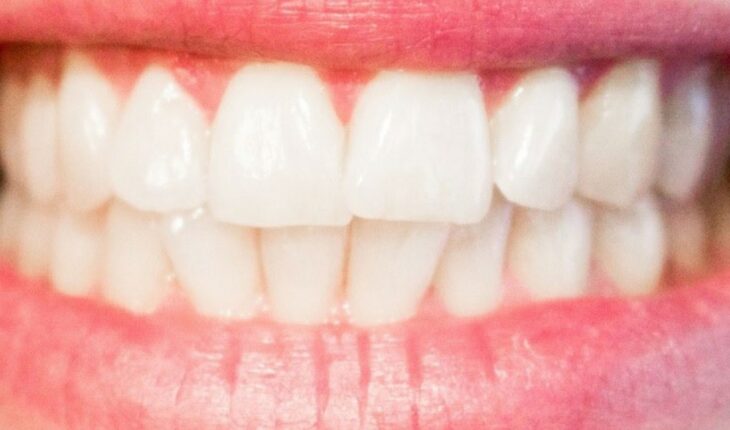From a young age, at home we were taught that, to have healthy teeth and gums, correct hygiene was the most basic. While this is very true, sometimes, due to various circumstances, we need to protect our oral health supported by specific vitamins and nutrients. A healthy diet has an overall impact on our physical well-being and state of health, and of course, it is also reflected in our teeth and gums. There are natural ways with which we can help strengthen our teeth and have healthy gums, avoiding gingivitis, cavities, among other common ailments that impact oral health. Preventing expensive and painful treatments to maintain healthy teeth and gums is key, and for this, there are vitamins and nutrients that help us, hand in hand with periodic visits to our dentist. Supplements and vitamins for healthy teeth and gums – Calcium: This is one of the most important elements for your teeth. If it is missing, it can lead to the loss of teeth and in turn generate diseased gums. According to the International Journal of Scientific Research, low calcium levels can lead to osteoporosis. Hypocalcemia or calcium deficiency, causes the bones and of course the teeth, to become much more fragile. Calcium can be purchased as a supplement, although with a diet that includes milk, cheese, yogurt, sardines, salmon, broccoli, spinach, nines, cereals, even beans and calcium-fortified juices, you could recover the levels of calcium that the body needs. An increased frequency of calcium deficiency has been found in postmenopausal women, women with amenorrhea, vegans or lactose intolerant people. But in all these cases, your doctor or nutritionist can guide you in a particular way.- Vitamin B-3 (niacin): This vitamin fights inflammation of the gums and minimizes sores in the mouth. According to the U.S. National Cancer Institute, vitamin B-3 helps some enzymes in the body function properly and helps keep the skin, nerves, and digestive system healthy. Vitamin B-3 can also help lower blood cholesterol. Also read: Vitamins that help eliminate knee pain, thicken cartilage and deflate ligaments- Vitamin B-2 (riboflavin): Like vitamin B-3, it is an auxiliary against mouth sores and inflammation of the gums. According to the U.S. National Institute of Health, vitamin B2 or riboflavin is important for the growth, development, and proper functioning of the body’s cells. Among its most important functions is to convert all the food we consume into energy. Vitamin B-2 (riboflavin) is found in eggs, organ meats such as liver, semi-skim milk, green vegetables such as asparagus, broccoli, spinach, fortified cereals, bread and other cereal-based products. A lack of riboflavin wreaks havoc on the skin, ulcers at the corners of the mouth, swollen and cracked lips, hair loss, sore throat, even liver disorders, and problems of the reproductive and nervous system. Also read: Study confirms it: Yes you can watch a “full movie” of your life at the time of death- Vitamin C: Among its important functions, in terms of the health of gums and teeth touches, is that it helps prevent gingivitis, thanks to the fact that it strengthens the connective tissues of the mouth. With that, the bleeding of the gums is combated and that they get sick. Vitamin C, also known as ascorbic acid, is necessary for our body to produce collagen, a protein needed for wound healing. In addition, it improves the absorption of iron contained in plant-based foods. Citrus fruits provide vitamin C for our tooth and gum health. / Photo: Pxhere In general, it is very necessary for the proper functioning of our immune system. The amounts of vitamin C we need vary by age. Vitamin C: Ages and recommended daily allowance: Infants up to 6 months of age – 40 mg Infants 7 to 12 months of age – 50 mg Children 1 to 3 years of age – 15 mg Children of 4 to 8 years of age – 25 mg Children of 9 to 13 years of age – 45 mg Adolescents (boys) of 14 to 18 years of age – 75 mg Adolescents (girls) of 14 to 18 years of age age – 65 mg Adults (men) – 90 mg Adults (women) – 75 mg Pregnant adolescents – 80 mg Pregnant women – 85 mg Breastfeeding adolescents – 115 mg Breastfeeding women – 120 mg Some of the best sources of vitamin C are citrus fruits, such as oranges, grapefruits and their juices. Also red peppers and greens and kiwi. Vitamin C is also in fruits and vegetables such as broccoli, strawberries, cantaloupe, baked potatoes and tomatoes. Probiotics: According to Mayo Clinic, probiotics are foods or supplements that contain live microorganisms intended to maintain or enhance the “good” bacteria (normal microflora) in the body. In the case of oral health, they stimulate the production of saliva, a factor that minimizes acids, eliminating bacteria in the mouth. This leads to a reduction in bad breath and minimization of the symptoms of gingivitis and inflammation of the gums. Probiotics are found naturally in foods such as yogurt. If you are considering the intake of supplements taken to obtain these microorganisms, it is advisable that you do it by visiting a doctor, and thus ensure that they are adequate. All of the above are some of the nutrients and vitamins necessary for healthy teeth and gums, however, remember that they are not everything. A key and elementary element is proper hygiene, such as proper tooth brushing, flossing, fluoride pastes, among other actions that your dentist may recommend.
Original source in Spanish
Vitamins and nutrients for healthy gums and teeth
April 17, 2022 |





